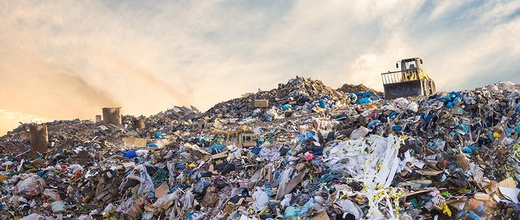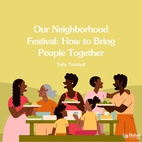The views expressed in our content reflect individual perspectives and do not represent the authoritative views of the Baha'i Faith.
I recently started working for a catering company—which allows me to see new parts of Chicago, the city where I live.
I’ve gotten to go to grand museums, symphony halls, and other venues that I would have never gone to otherwise.
One thing this job has exposed me to is how normalized it is to waste food. Every night I work, we throw away plates and plates of untouched food, because it’s illegal for people to take the leftover food home for safety reasons. This means that even the food that never left the kitchen has to be thrown away.
At each event, it pains me and my coworkers to throw away so much edible food. I think there has to be a better way to do this. We shouldn’t have to throw away so much excess food when so many people are hungry. It feels like throwing away so much food is a unaddressed gap in the system, or an oversight—we can do better!
But in our culture, excessive amounts of waste are normalized, from the individual level all the way up to larger institutions, like the catering company I work for. It’s almost as if the more we consume, the more we waste. On top of all this, a lot of the things we throw away have projected lifetimes on this Earth three times longer than the lifespan of an average human.
All this makes me think of how the food service industry is built to meet our physical needs, but doesn’t necessarily cater to our larger, more spiritual ones. Food suppliers, like most other service industry jobs, are tasked with ensuring physical satisfaction, without considering spiritual implications. The need to satisfy people’s immediate hunger can be met, but it’s harder to control moderation, environmental stewardship, or equality when the whole culture comes from a place of allowing and even celebrating excess.
As I reflect, I realize this is a flaw in the system that points towards a larger paradigm: a lack of acknowledgement of our spiritual nature, and how that connects to our obligation to take care of each other, as well as the Earth.
The Baha’i teachings talk about the importance of both material and spiritual progress, and link the two together:
Baha’u’llah taught that hearts must receive the Bounty of the Holy Spirit, so that Spiritual civilization may be established. For material civilization is not adequate for the needs of mankind and cannot be the cause of its happiness. Material civilization is like the body and spiritual civilization is like the soul. Body without soul cannot live. – Abdu’l-Baha, Abdu’l-Baha in London, p. 29.
It is indeed a good and praiseworthy thing to progress materially, but in so doing, let us not neglect the more important spiritual progress, and close our eyes to the Divine light shining in our midst. – Abdu’l-Baha, Paris Talks, pp. 62-63.
Abdu’l-Baha compared society to a human being, where material civilization is the body and spiritual civilization is the soul. I imagine that this human can’t grow to reach its full potential unless it’s being nurtured physically and spiritually.
Can you imagine a society that only functions on structures formed by fusing the spiritual and the material? From the production of our favorite music to the produce we grow on farms or buy at the grocery store, each process and product would be created with human joy and spiritual elevation in mind. In this future state of society, we will ask ourselves, “how will we make things that catalyze people’s inner and outer progress?” instead of “how can we make things that people will buy?”
In this society, no food will be wasted and everyone will go to sleep satisfied with the dinner they ate that night.

















Comments
Sign in or create an account
Continue with Googleor